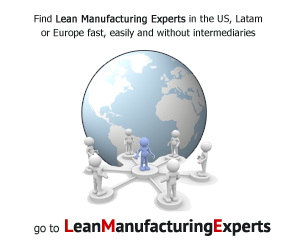Beyond Business as Usual
Are you investigating the possibilities that will open up through advanced robotics, 3-D printers, lean management, and the large-scale digitization of operations?.
 Conducting business as usual is no longer enough. Twenty-first century businesses are facing an increasing demand—from investors, stakeholders, and public opinion—to deliver not only good financial returns, but also sustainable management practices and responsible resource use. The firms that incorporate these demands in their value chain will mitigate the risks and maximize the opportunities. How? Some are already doing it.
Conducting business as usual is no longer enough. Twenty-first century businesses are facing an increasing demand—from investors, stakeholders, and public opinion—to deliver not only good financial returns, but also sustainable management practices and responsible resource use. The firms that incorporate these demands in their value chain will mitigate the risks and maximize the opportunities. How? Some are already doing it.
First, in the workplace, enforcement of worker health and safety is gradually improving conditions for factory workers all over the world. Many firms are now moving from ad hoc labor arrangements to firmer employment contracts which offer a career path and consideration for personal well-being and work-life balance. In places like Silicon Valley, firms have installed gyms and started offering on-site healthcare and retail facilities. In Asia, however, the employees’ needs differ. In China, for example, air purification is likely to become a top priority.
Second, interestingly, most recent debate is focusing on the need to improve the governance structures that are in place at the firms. As a recent McKinsey survey reports, directors should spend a greater share of their time working on “matters crucial to the future prosperity and direction of the business,” rather than spending 70 percent of their time “on quarterly reports, audit reviews, budgets, and compliance”—as they currently do. Furthermore, we are observing the strengthening of legal and regulatory requirements across the major trading jurisdictions, which call for a new breed of managers.
In today’s Volatile, Uncertain, Complex and Ambiguous (VUCA) world, how can management take a step back to consider the implications for business beyond ‘as usual’ in their own company and thus ensure a sustainable future?
In this series of four articles, we shall suggest ways for companies to Re-Vision, Restructure, Recalibrate and Renew their organizational culture for the long-term in order to catalyze business operations and trade today.
RE-VISION
Management that is not giving sufficient attention and resources to Re-Vision the future of its company, its sector, and its markets is unlikely to survive. The Re-Visioning process is primarily a significant shift in thinking and investment from a short-term, conservative, and risk-averse paradigm; to a sustainable future that connects the business with the interests of the whole planet.
Companies like Unilever and GE have made it clear that slavery to myopic, short-term markets will not lead to a sustainable future for its shareholders, its stakeholders, and the needs of a growing world population. Both these companies have been adept at Re-Visioning their future. GE is reimagining manufacturing with 3D printed parts, spray-on metals, and space-age materials. Since 2010, Unilever has been pursuing a 10-year sustainability plan that requires suppliers and distributors to invest in sustainable resource usage and ecosystem conservation. The company is also researching how consumers could use their brands in more eco-efficient ways.
The risky challenge for the CEOs of these giant multinationals is in taking a clear stance in their relations with investors to show that they will not follow ‘business as usual’ patterns. Yes, this strategy may not maximize short-term earnings; but if you are an investor like Warren Buffet, whose ideal holding period is forever, then long-term sustainable returns, not short-term speculative holdings, are the ultimate goal. Paul Polman, Unilever’s CEO, has been plain-speaking about short-term speculative investors: “You don’t belong in this company. The sheer fact that you buy a few shares doesn’t give you the right to mess up our strategy.” 1 For Polman, CSR and CSV (Creating Shared Value) are in the ‘business as usual’ paradigm:
The world is at a point where you have to solve the issues and reverse what is happening. Being good is no longer good enough; companies must be part of the solution. Instead of finding ways to use society and the environment to be successful, companies must contribute to society and the environment in order to sustain success.2
GE and Unilever, along with 27 other members of the World Business Council for Sustainable Development (WBCSD), have laid out Vision 2050, in which around 9 billion people will be living well—with enough food, clean water, sanitation, shelter, mobility, education, and health to make for wellness—within the resource limits of the planet. Companies committing to this agenda are attracting ‘beyond business as usual’ investors, typically those fund managers who are mandated to include companies playing for the sustainable long-term (often measured by ESG criteria: Environmental, Social, and Governance factors). Pension funds, insurance companies, mutual funds, and sovereign wealth funds hold about 35 percent of the world’s financial assets. As McKinsey’s Dominic Barton points out, the beneficiaries of these funds have an obvious interest in long-term value creation and yet, money managers’ performance and compensation is only linked to the amount of assets that they manage, which typically rises when short-term performance is strong.3 Outside the U.S., many countries place a fiduciary duty on asset managers to consider ESG issues in the management of pension assets and/or investment funds.4
Facing questions about the future
Re-Visioning is the exercise of seeing the future before it happens, especially in relation to your own industry. What services and products could be created that have a neutral impact on resource usage? What is the emerging generation Z likely to value as they enter adult consumer markets? What are their overriding values by region? How can you out-strip industry compliance standards to be the leader in 2020? How do you meet evolving demand from new markets and regionalize those products? Can you swiftly embrace emerging technologies and make new supply ecosystems a differentiator? Are you investigating the possibilities that will open up through advanced robotics, 3-D printers, lean management, and the large-scale digitization of operations? Addressing these questions successfully requires total employee engagement and a human sense of what both stakeholders and wider society want. GE’s Submitted Ideas Operation is set up for the purpose of encouraging and harnessing ideas and inventions from insiders and outsiders. Divisional leaders across large companies need to be given mandates to seek out audacious goals and visions that are inspired by what business could achieve to ensure the healthy survival of 9 billion by 2050. The ROI [Return on Investment] on Re-Visioning is unlikely to meet short-term budgetary timelines. But we have evidence that sustainable innovation is more likely to put a premium on value in developed markets, open up new markets in the emerging world, and offer higher returns on capital.5
Re-Visioning the value proposition of the firm
For many firms, particularly those with entrepreneurial roots, the business as usual model of ‘take-make-waste’ is one that is being swiftly abandoned. In markets today, the value proposition is rapidly moving to engage consumers in shared economies that were once considered impossible. Cars through ZipCar, hotels through AirBnB, and a host of other service-based models are disrupting the way in which many firms are reconstructing their value proposition, often delivering social and environmental benefits as part of it.
Re-Visioning the use of resources
One vital area for Re-Visioning is in resource usage. Take water as one vital example and ask yourself: Could your company’s production facilities be adapted to recycle 90 percent of all its water usage? GE’s AquaSel system was installed in an Asian Coca-Cola bottling plant to achieve overall onsite water recovery to greater than 99 percent. Water recovery systems are making significant improvement every year and reducing the cost of water recovery. A Nalco sewer water re-use technology has resulted in the Renaissance Convention Centre in Mumbai saving 16 million gallons of fresh water every year.
Re-Visioning a fundamental shift in resources is a challenge, as Ray Anderson, founder of InterfaceFLOR, discovered. Twenty years ago, Anderson Re-Visioned his company with ‘Mission Zero’: zero environmental impact by 2020, a vision which InterfaceFLOR says it is 80 percent of the way to completing.
Re-Visioning through skunk works and pilot projects
Re-Visioning requires companies to be experimental in bringing people together from inside and outside the company to generate new solutions and technologies, but with a clear view of what the future will demand. One way to do this is through Skunk works. These are loosely structured groups tasked with radical innovation. For example, at Nanjing University Polytechnic, a group of students have developed a gas engine-driven heat pump system. The engine’s exhaust smoke heats circulating water and replaces the heating system and hot water boilers for 24 hours!
Another way is through pilot projects. BMW recently launched its own electric cars. The i3 and i8 electric cars are part of a BMW’s pilot initiative aimed at rethinking the future of urban transformation and mobility. The participants aimed to reduce the footprint of automobiles through connectivity, new materials, and new manufacturing processes.
Board Re-Visioning
Boardroom agendas are always dominated by urgent, short-term problems, yet many companies are also engaging in the Re-Visioning journey. McKinsey has reported that they have been facilitating “more and more joint board and management off-sites to try to define 10- or even 20-year visions.” 6 Taking strategic time at board level to Re-Vision is vital if companies are to see the future before it happens. Re-Visioning over a ten-year period must take account of the global intent that everyone should have access to the basic needs of life and beyond to ‘well-being,’ the ability to afford education, healthcare, and mobility. The new strategy of ‘next-shoring’ (localizing innovation and production to be close to demand) offers one way of creating and retaining value locally where the greatest market growth potential lies.
Re-Visioning business is a challenging path. But we believe the evidence is already showing that longer-term investment plans bring positive returns through better products, more productive employees, and a better alignment of brand. Re-Visioning can make a positive difference in the VUCA world.
Source: policyinnovations.org

 News, training, experts opinion, bibliography, software and everything about Lean world.
News, training, experts opinion, bibliography, software and everything about Lean world.
